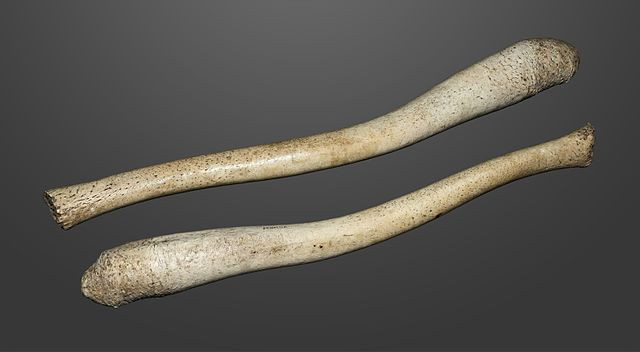Lack Of Penis Bone In Humans Linked To Monogamous Relationships, Quick Sex

Many of us call erections "boners," although there's no actual bone in the penis. This bone has been the subject of many debates as several animals have them in diverse sizes and lengths, but humans don't. Evolutionary scientists at the University College London suggest this strange anomaly is a consequence of monogamy and quick sex.
The penis bone, also known as the "baculum," evolved in mammals more than 95 million years ago, and was spotted in the first primates that emerged about 50 million years ago, according to the researchers. The baculum became larger in some animals and smaller in others. For example, in the walrus, it can be two feet long, while in a monkey it’s about the length of a human fingernail.
Read: The Evolution Of Penis Size
Previous research has found the penis bone increases the potential duration of intercourse, and the frequency with which sex can take place. A lioness can copulate 100 times per day, sometimes with only four-minute intervals, but has just a 38 percent conception rate. This means males need to have better sexual stamina to achieve the best chance of paternity.
So, why do humans lack a penis bone?
The recent study, published in Proceedings of the Royal Society, found a link between penis bone length, promiscuity, and sex duration. Some species have longer penis bones because they engage in "prolonged intromission," which means the act of penetration lasts for more than three minutes. Longer intromission times are more common among polygamous mating species, where multiple males mate with multiple females, like bonobos and chimps. This mating system creates an intense competition for fertilization, and reduces a female's access to more mates by having males spend more time having sex with them, according to the study.
The penis bone is attached at the tip of the penis rather than the base to provide structural support for animals who do prolonged intromission, and to keep the urethra open.
The researchers believe humans lost their penis bones when monogamy became a dominant reproductive strategy about 1.9 million years ago.
"We think that is when the human baculum would have disappeared because the mating system changed at that point," Kit Opie, a co-author of the study at University College London, told The Guardian.
Opie and his colleague Miranda Brindle believe the male does not need to spend a long time penetrating the female since she is not likely to be leapt by other amorous males. Therefore, the reduction of competition for mates means humans are less likely to need a penis bone. Opie adds, despite popular belief, humans do not generally need longer than three minutes to get the job done, and successfully impregnate a woman.
Read: The Evolution Of Monogamy
"[W]e are actually one of the species that comes in below the three minute cut-off where these things come in handy," he said.
Scientists have just begun to put together the function of this mysterious bone. They do agree changes in the penis bone are driven as part of a mating strategy. This means a bigger penis bone is better when it comes to sexual competition.
Human males, do not feel bad — if the penis bone is damaged, it could take as long as other broken bones to heal.
Source: Brindle M and Opie C. Postcopulatory sexual selection influences baculum evolution in primates and carnivores. Proceedings of the Royal Society. 2016.
See Also:
Our Bones Grew Weaker As We Switched To Farming, Sedentary Lives
Published by Medicaldaily.com



























